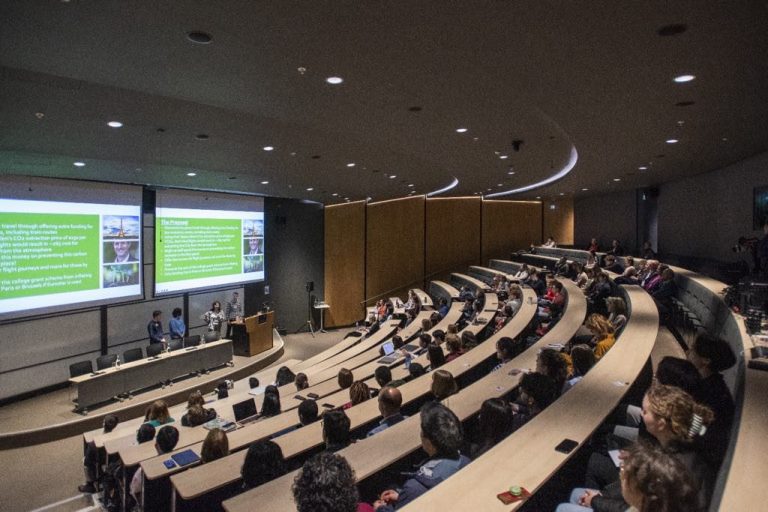This week, Cherwell reached out to a titan of St John’s, and indeed, Oxford sport: Ian Madden. Madden has been a groundsman at the St John’s ground for 17 years, and a groundsman for 40. He had much to say about how Oxford sport has transformed in that time.
Cherwell: What is your name?
Ian Madden: Ian Madden.
Cherwell: What is your role at St. John’s and elsewhere?
Ian Madden: Head Groundsman at the Fortress (the St John’s Ground).
Cherwell: What does being Head Groundsman involve?
Ian Madden: Being Head Groundsman involves getting pitches ready for students: football, rugby, tennis in the summer, cricket in the winter and looking after the hard tennis courts. It also involves general maintenance of the pavilion, changing rooms and making sure everyone is happy on the day of a match!
Cherwell: How and when did you come to be in this role?
Ian Madden: I’ve been at St. John’s now for 17 years, but I’ve been a groundsman since I was 18, so that’s 40 years. I started working with my father down on Exeter and Hertford pitches, and we also had St. Catherine’s grounds, so we had 3 colleges with x amount of teams, so that’s loads. My father was there as Head Groundsman for 50 years and my brother is also Head Groundsman at Trinity, so that’s how I fell into the role; as a sort of family trait.
Cherwell: Your dad was a groundskeeper; how did he get into groundskeeping?
Ian Madden: To tell you the truth, it’s one of those situations where he knew the groundsman down there and he used to work as a mechanic in one of the garages in Oxford. He decided to leave there and decided to work for a chap, I believe his name was Art Inwood, and he took on the job and worked there from then on.
Cherwell: What is your favourite memory as groundskeeper at the Fortress?
Ian Madden: For me, it has to be 2014 Rugby Cuppers Victory at Iffley Road, sticks in my mind all the time – we’ve made the finals 3 or 4 times since then, but the victory stands out as a highlight. But everytime we get to a final, it’s always a highlight!
Cherwell: What’s the craziest thing you’ve seen happen at the Fortress?
Ian Madden: We used to have welcome drinks here many, many years ago. And it was a situation we had won a big rugby match and the boys had a couple of drinks and got a bit merry! I looked out the pavilion and they were doing naked wheelbarrow races up and down the field, it was the funniest thing I’ve ever seen.
Cherwell: How did that come to happen?
Ian Madden: Well you know, when people have a few drinks, these silly things happen. Someone comes up with a bright idea and these things just crack on! It was very entertaining and one or two of the locals spotted it and were highly amused, not disappointed at all, they were highly amused.
Cherwell: What’s the best part of your job?
Ian Madden: The best part of my job is seeing that at the end of the day, everyone’s leaving the ground happy. With the pitches being presented in top-quality condition and providing that we play, doesn’t matter whether we win or lose. Ensuring that everyone has had a great day – that’s all we are interested in here.
Cherwell: What’s the worst part of the job?
Ian Madden: Obviously losing in the Cuppers Final, in either sport, rugby or football.
Cherwell: You run the current cricket T20 league, right? How did that come to be and what system existed beforehand?
Ian Madden: Going back 10 or 12 years ago, there was a league which was held on Wednesday afternoons. That always tied up students and if it was raining, the game was just called off. So when the groundsman who was running the league decided to call it a day, I set up what we call the Fortress T20 League. It’s a flexible league, both captains agree on when to play, it’s all T20s in the evening and it just runs smoothly. It’s the 8th year coming up, we’ve produced quality wickets, medals and trophies – so there is something to win at the end of the day; unlike the University Cup, where you win nothing.
Going back 30 years ago, there was no real league structure for cricket whatsoever. Mainly, cricket was played in friendlies: touring teams and colleges against each other. A chap called Graham [Sabin] decided to set up the cricket league. This ran most afternoons, Monday to Friday, with a 40 over format. But with work commitments these days, people just do not have time to play a 40 over format, which a real shame. That’s what we really should be aiming it, if people are looking to make it into the Blues, then they need to be playing a longer game of cricket as opposed to T20.
Cherwell: How do you find changing the grounds during the seasons?
Ian Madden: It can be trying, depending on the weather conditions. If we had a summer like a couple of years ago with the drought, then you would look at the field and it would just be a desert, everything was brown. You would be praying for some rain to get the grass growing again. But you have to carry on as normal and try and prep them and hopefully the rain comes along. Yet it comes every year: it’s England!
Cherwell: How much has changed since you first became groundskeeper?
Ian Madden: The job has changed completely. Years ago, the groundsman was in charge of everything on the sports ground. St. John’s is very liberal with me, and they allow us to do what we really want to do. Back in the day, your wife would help set the tea for the cricket matches, and we used to have bars in the pavilion. These days people have moved on, and most grounds have lost their drinking licenses. It’s been a big change from the heyday to now. It is still good, but the social side after matches is gone, which is a real shame. I believe you do lose part of the Oxford experience by not having a social get together after a match, revolving around a pint or two.
Cherwell: Anything else you would like to tell us?
Ian Madden: When I first came to St. John’s 17 years ago, it was the prestigious job to get out of all of the colleges. It’s always been rated as the best ground; the rugby pitch is superb and we’re very fortunate as it is one of the flattest pitches in Oxford. We’ve won awards from the groundsmen at Twickenham [Rugby Stadium] a few years ago on the ground’s presentation and won two tickets for England v Australia at Twickenham with free pizzas and champagne. Didn’t see much of the game, must admit! Yeah, St. John’s has been pretty good to me over the years, and can’t really fault them!











